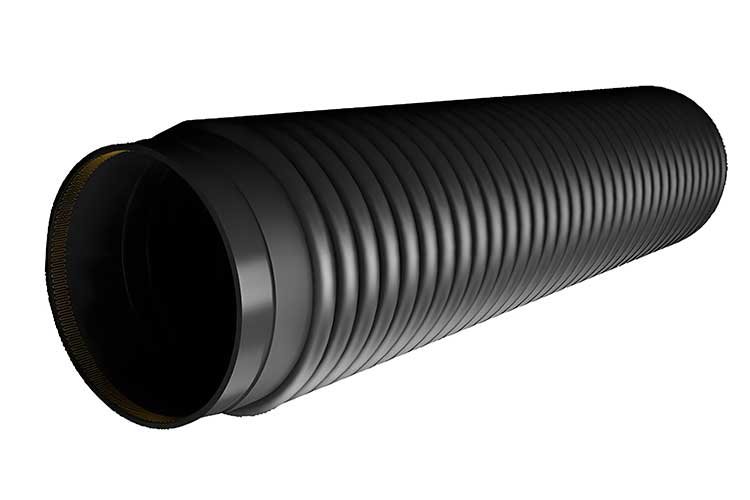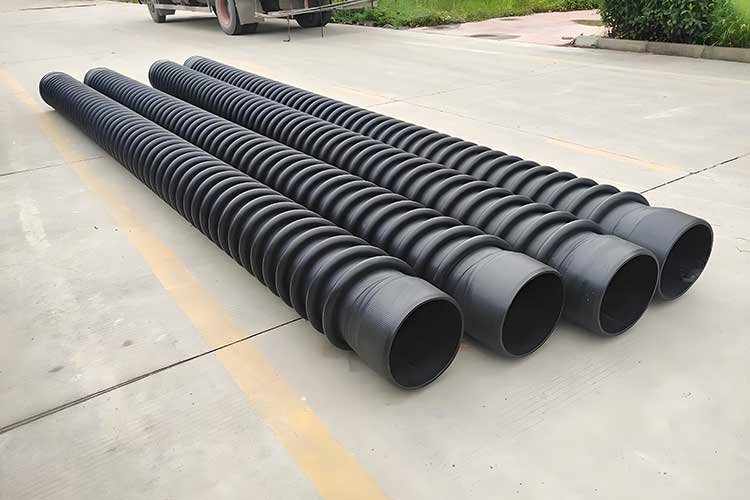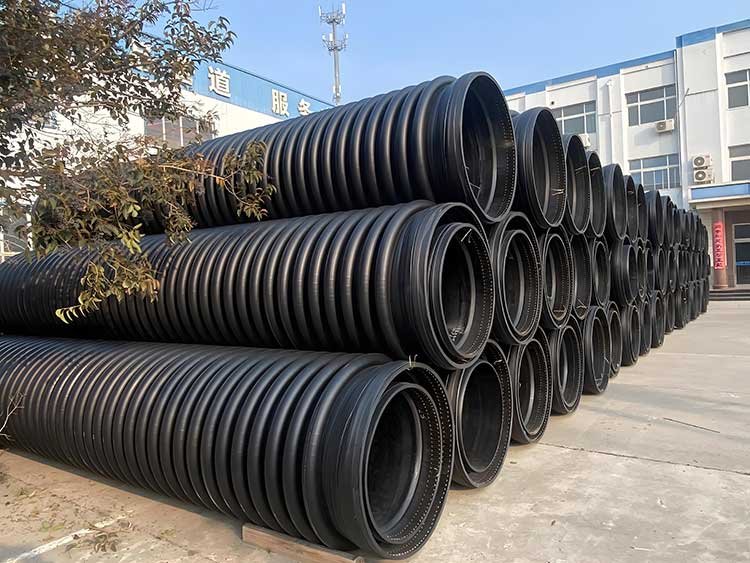What is a carat pipe

Carat Pipe is a hot-wound high-density polyethylene (HDPE) spiral-wound structural pipe. Made using HDPE resin as the primary raw material, using a hot-wound process and a polypropylene (PP) single-wall corrugated pipe as the supporting structure, Carat Tube is a special structural wall pipe with high resistance to external pressure.
Carat pipe type

Carat pipe products can be divided into four series: PR, OP, SQ, and VW:
PR、OP
Mainly used as buried drainage pipes
SQ
Mainly used to make containers or manholes
VW
Mainly used for tees, elbows, and secondary processed pipe fittings;
The most widely used product is the PR series, which has a smooth inner surface and a special-shaped reinforced structure on the outside. The standard length of the pipe is 6 meters, and the inner diameter range is DN300-DN4000. The product indicators meet the requirements of GB/T 19472.2-2017 B-type structural wall pipe standard and EN-13476 European standard.
Advantages of carat pipe

High-quality welding
The hot winding molding is adopted to ensure the high quality of the pipe’s weld seam and enhance the ability to resist external pressure.
Easy installation
The pipe connection adopts the socket fusion connection technology with pre-buried electric fuse in the socket, which can achieve 100% leakage-free, reduce construction costs and shorten construction time.
Both flexibility and rigidity
The Kra pipe is flexible on a macro scale, and can minimize pipeline damage losses during geological activities such as earthquakes and uneven ground settlement. The local pipe sections have strong rigidity and overall resistance to external pressure, which can ensure traffic safety when used on overloaded roads.
Environmentally friendly and durable
Made of high-density polyethylene, it does not require anti-corrosion treatment, has a service life of more than 50 years, and is recyclable.
Low inner wall roughness and large water flow
The inner wall roughness N of the spiral structure wall pipe product is about 0.010, so the friction resistance is small when conveying fluid. Under the same conditions of use, the water conveyance can be greatly increased compared with cement pipes.
Application fields of carat pipe

Carat pipes are primarily used in municipal underground drainage, sewage disposal, rainwater collection, water supply, and ventilation. They can be used as seepage and drainage pipes for railways, highways, golf courses, and football fields.
Due to their excellent acid, alkali, and corrosion resistance, polyethylene and polypropylene are widely used in nuclear power plants, steel mills, power plants, petrochemical plants, docks, and railway stations. They offer particular advantages in harsh environments such as mudflats, saline-alkali land, submarine riverbeds, soft foundation expansive soils, and seismic zones.